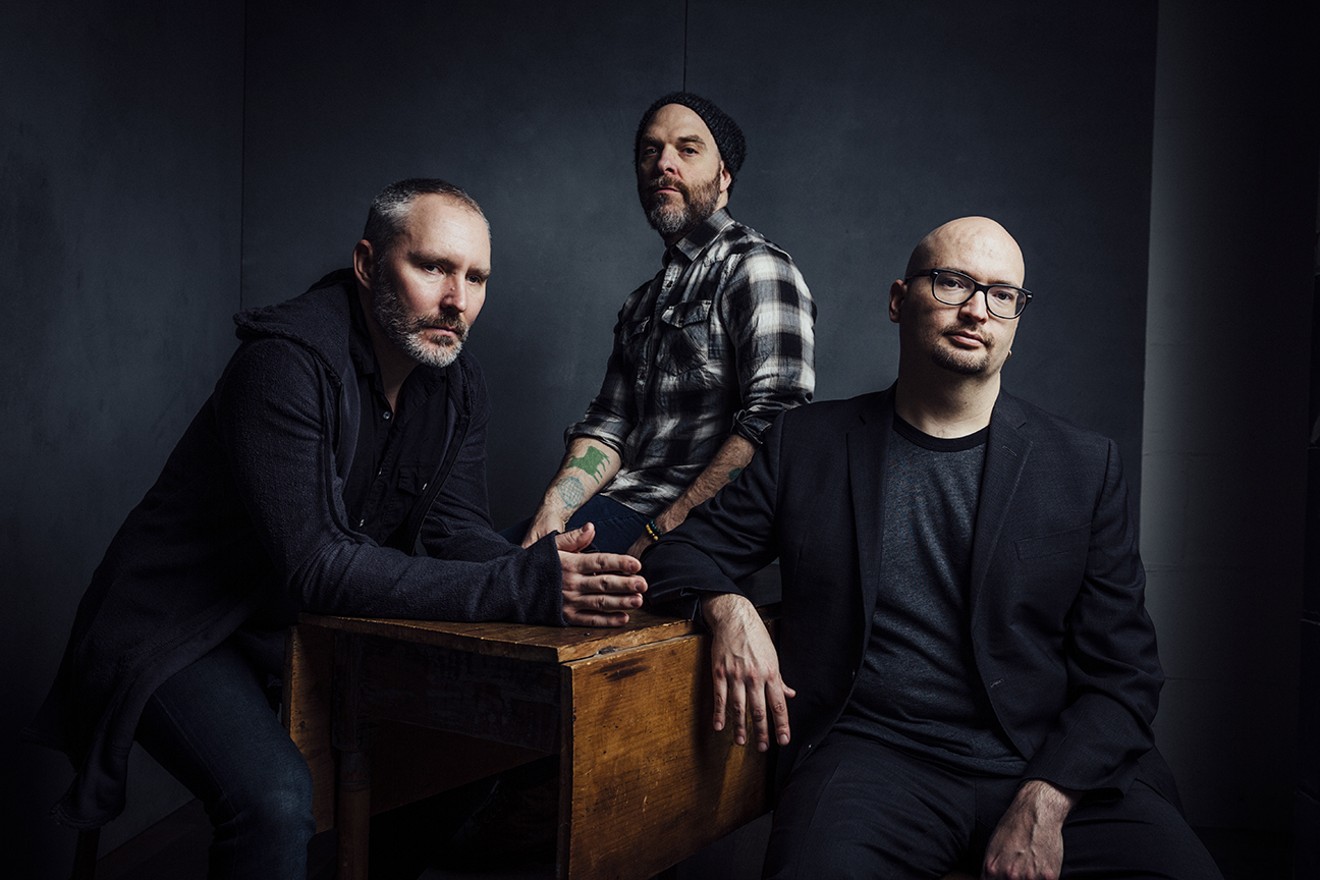Celebrated American jazz trio the Bad Plus knows no limits when it comes to taking on a variety of sounds, styles and genres. Riffing on other people’s tunes is nothing new in jazz, but the breadth of musical interests that bassist Reid Anderson, pianist Ethan Iverson and drummer Dave King bring to their collaboration makes the group stand out.
For instance, there’s Made Possible, from 2012, the band’s first foray into electronic music. Then The Rite of Spring, from 2014, an ambitious interpretation of Igor Stravinsky’s 1913 orchestral work. That same year, the Bad Plus released Inevitable Western, a full-length album of original jazz compositions. And in 2015, the group unveiled a collaboration with master saxophonist Joshua Redman.
Which brings us to It’s Hard, last year’s collection of covers — or as King calls them, “deconstructions” of other people’s music. Before that, he says, “We hadn’t arranged a pop song for the three of us in ten years.”
The Bad Plus first showed up on the national radar in the early 2000s, thanks to its off-kilter takes on songs by giants like Abba, Black Sabbath, Nirvana, Blondie and Aphex Twin. Those covers earned the admiration of progressives who were pleased that the group was playing songs that looked toward the future rather than into the depths of the musicians’ navels; the covers also riled up a few jazz traditionalists, who viewed them as heretical.
“This album works if you truly believe that Kurt Cobain is as valid a musical influence as Miles Davis or John Coltrane,” wrote Bill Milkowski in 2004, in a JazzTimes column on the band’s third album, Give.
In the ensuing years, the band laid low by playing more traditional songs and original compositions. But with It’s Hard, says King, “We were like, ‘Let’s weigh in again now that it’s far less controversial than when we first did it.’”
For the three players, the covers were less about pushing envelopes and more about providing the world with an honest, well-rounded picture of themselves, their full spectrum of musical influences and their origins in the upper Midwest. (Anderson and King are from Minneapolis, Iverson from Wisconsin.)
“We love all forms of jazz, but we also love good pop music, and we’re also students of classical music,” King says. “So one thing we try to do is be a real modern ensemble. Never deny your generation. Never deny your interests or the temperature of the world where you are at the time. It’s actually at your peril if you...try to be in a bubble. What we try to do is allow — that’s our word — we allow it in, and we try to make it as good as we can.”
On It’s Hard, the group exhibits both an elegant touch and avant-garde inclinations. The album opens with a jumbled, jittery take on the Yeah Yeah Yeahs’ “Maps” that is largely unrecognizable until the familiar melody of the chorus surfaces about three-quarters of the way in. There’s a gorgeous, unhurried take on Cyndi Lauper’s “Time After Time,” and a sprightly version of Johnny Cash’s “I Walk the Line” that zigs when you think it will zag.
“No matter what we’re doing, from originals to big, iconic classical pieces or whatever, we always want to make the music sound like it can only come from these three people,” King says. “That’s why it’s a band. It’s a complete democracy — no leader. We just try to celebrate this idea of a truly equal collective, and that’s a very rare thing in jazz.”
The covers do more than show off the band’s range; they also give the musicians a chance to practice their leaderless ethos. Original pieces invariably sprout from one member, who is given what King calls “the composer’s right-of-way” during the arrangement and recording process. For covers, all three go in together to figure out if they can turn an idea into something that actually works.
“It’s a very kind of delicate chemistry, because the three of us are very different, and we’re also very Type A,” King says. “Ultimately, though, it’s very refreshing to feel like everyone has ownership, [like] everyone is down with what’s happening, because we share that sound and we share that space.”
They don’t see genre-blind excursions as the work of jazz heretics, either. Says King: “We’ve always believed in the idea of the jazz tradition of taking some of the music of the day and improvising on it. I think that’s the way that we feel we’ve been connected to a jazz tradition and at the same time a part of our own generation.”
The Bad Plus
6:30 p.m. and 8:30 p.m. Tuesday, January 17, and Wednesday, January 18, Dazzle Restaurant & Lounge, 930 Lincoln Street, 303-839-5100, $27-$30, all ages until 10:30 p.m.
[
{
"name": "Air - MediumRectangle - Inline Content - Mobile Display Size",
"component": "12017618",
"insertPoint": "2",
"requiredCountToDisplay": "2"
},{
"name": "Editor Picks",
"component": "17242653",
"insertPoint": "4",
"requiredCountToDisplay": "1"
},{
"name": "Inline Links",
"component": "18838239",
"insertPoint": "8th",
"startingPoint": 8,
"requiredCountToDisplay": "7",
"maxInsertions": 25
},{
"name": "Air - MediumRectangle - Combo - Inline Content",
"component": "17261320",
"insertPoint": "8th",
"startingPoint": 8,
"requiredCountToDisplay": "7",
"maxInsertions": 25
},{
"name": "Inline Links",
"component": "18838239",
"insertPoint": "8th",
"startingPoint": 12,
"requiredCountToDisplay": "11",
"maxInsertions": 25
},{
"name": "Air - Leaderboard Tower - Combo - Inline Content",
"component": "17261321",
"insertPoint": "8th",
"startingPoint": 12,
"requiredCountToDisplay": "11",
"maxInsertions": 25
}
]











